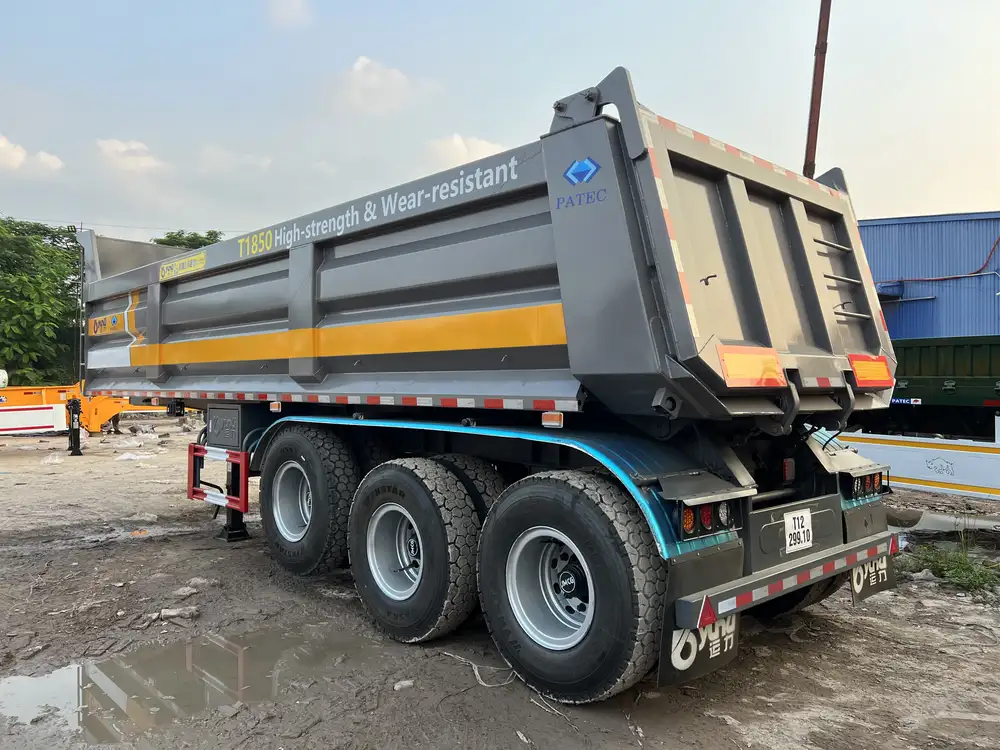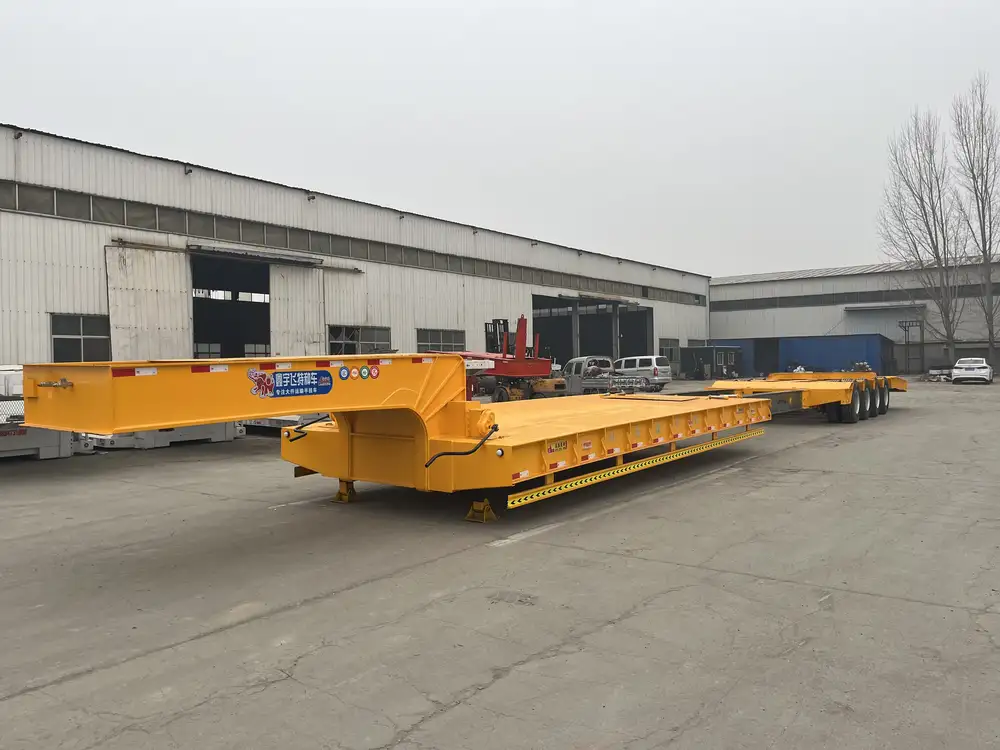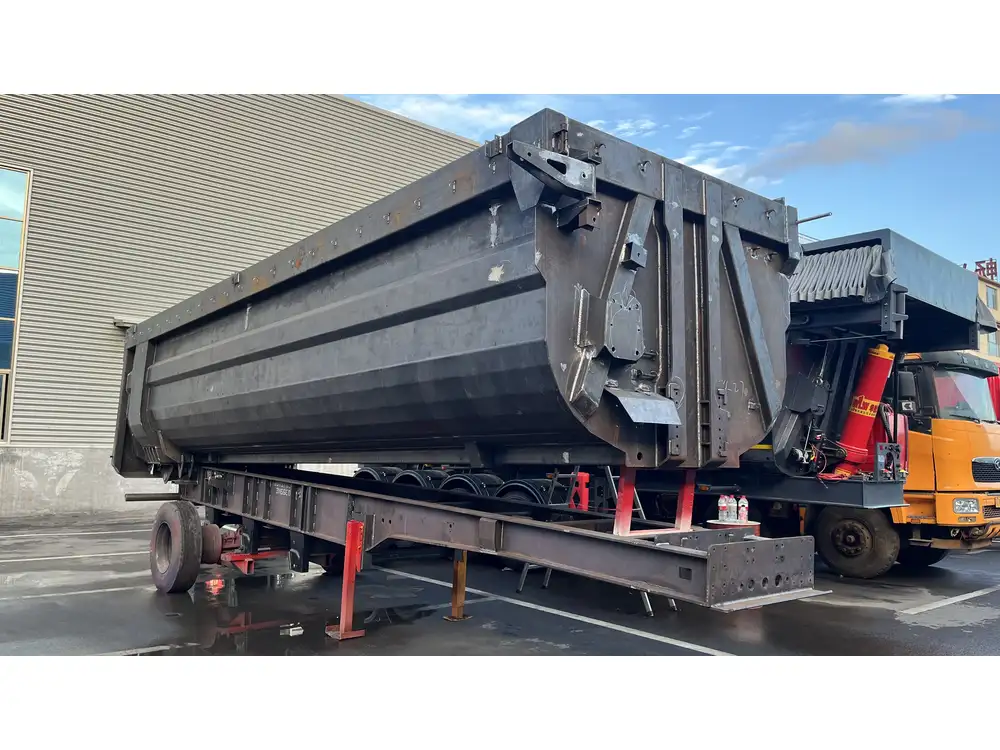Understanding the weight of an empty tanker trailer is crucial for both manufacturers and operators in the freight transportation industry. Knowing the exact weight can greatly influence various aspects of operation, from compliance with transportation regulations to assessing vehicle performance and optimizing load capacities. This article provides detailed insights into tanker trailers and their weights, offering valuable data and insights for better decision-making.
What Is a Tanker Trailer?
A tanker trailer, commonly referred to as a tank truck, is a specialized vehicle designed specifically for transporting liquids, gases, or semi-solid materials. These trailers come in various shapes and sizes, tailored to handle the unique properties of the substances they carry. The empty weight of a tanker trailer is determined by several factors, including materials used, size, and design configurations.
Types of Tanker Trailers
| Type | Description | Common Uses |
|---|---|---|
| Fuel Tankers | Designed to transport petroleum and refined fuel. | Gas stations, oil refineries. |
| Chemical Tankers | Used for transporting hazardous chemicals. | Chemical plants, manufacturing. |
| Food-Grade Tankers | Insulated to carry edible liquids like milk or juice. | Dairy farms, beverage distributors. |
| Water Tankers | Frequently used in agriculture and firefighting. | Irrigation, firefighting services. |
Each type serves a specific purpose, influencing its design and, consequently, its weight when empty. As we delve deeper into the topic, we will examine the typical empty weights associated with each type of tanker trailer.

The Average Empty Weight of Tanker Trailers
The average empty weight of a tanker trailer can vary significantly based on its design and the materials utilized in its construction. However, it is essential to note that typical empty weights generally range as follows:
- Fuel Tankers: 15,000 to 30,000 pounds (6,800 to 13,600 kg)
- Chemical Tankers: 12,000 to 25,000 pounds (5,400 to 11,300 kg)
- Food-Grade Tankers: 10,000 to 20,000 pounds (4,500 to 9,000 kg)
- Water Tankers: 6,000 to 15,000 pounds (2,700 to 6,800 kg)
These weights can fluctuate based on specific configurations and added features, such as insulation or specialized pumping systems.
Factors Influencing the Weight of a Tanker Trailer
Several factors play a pivotal role in determining the overall weight of a tanker trailer:
Construction Materials: Tanker trailers can be constructed from various materials, including aluminum, stainless steel, or carbon steel, each possessing distinct weight characteristics. For example, aluminum trailers, while lighter, are generally more expensive, whereas carbon steel options typically weigh more but are more cost-effective.
Size and Capacity: The size of the trailer also significantly impacts its weight. Larger trailers with a greater liquid capacity naturally weigh more. Standard capacities for tankers typically range from 3,000 to 11,000 gallons (approximately 11,000 to 41,600 liters).
Design Features: Features such as insulation, multi-compartment designs, and specialized cargo systems can add extra pounds to the trailer’s structure. Inter-connecting systems for multi-product transport often lead to an increase in overall dimensions and, consequently, added weight.
Regulations and Safety: Compliance with federal and state regulations may necessitate additional protective features, such as baffles or spill containment systems, which could further influence the overall weight.
Add-on Equipment: Various add-on components, like pumps and heating mechanisms, are essential for transporting specific types of materials but inevitably contribute additional weight to the overall vehicle.
The Importance of Knowing the Empty Weight
Knowing the empty weight of a tanker trailer is not merely a matter of curiosity; it has practical implications:

Load Capacity Calculation
Every trailer has a maximum gross vehicle weight rating (GVWR), which includes both the weight of the trailer itself and its cargo. For effective load management and to avoid penalties or safety hazards, it’s crucial to accurately calculate the load capacity:
[ \text{Payload Capacity} = \text{GVWR} – \text{Empty Weight} ]Regulatory Compliance
Transportation regulations, such as those enforced by the Federal Motor Carrier Safety Administration (FMCSA), require adherence to strict weight limits. Exceeding these limits can result in hefty fines, legal implications, and operational downtimes.
Performance Optimization
The weight of the trailer impacts not only fuel consumption but also overall vehicle handling. Understanding the empty weight helps in making decisions about vehicle configurations and optimizations for specific routes or cargo types.

Safety Considerations
A full understanding of the a tanker trailer’s weight dynamics helps to mitigate risks associated with transporting liquids, particularly in adverse weather conditions or difficult terrains. It allows operators to better plan their routes and handling techniques.
How Weigh Stations Evaluate Tanker Trailers
Weigh stations serve as pivotal points for regulatory compliance checks on weight limits for commercial vehicles, including tanker trailers. Here’s how they operate:
Static Weighing: Trucks stop at weigh stations where they are weighed on large platforms. The empty weight is compared against the loaded weight to ensure it stays within the regulatory limits.
Mobile Weighing: Sometimes, authorities use portable weigh systems that can be set up at different locations to check trucks randomly without needing them to stop at weigh stations.
Electronic Weighing Systems: Many modern weigh stations are equipped with electronic instruments that can automatically capture weight data through sensors integrated into the roadway, reducing wait times and streamlining the process.
Weight Enforcement Techniques
| Technique | Description |
|---|---|
| Weigh-In-Motion Systems | Weigh trucks as they drive over sensors. |
| Portable Scales | Used for inspections at road checks or job sites. |
| Laser Weighing | Advanced technology for accurate measurements. |
These systems not only enhance compliance but also ensure road safety by reducing overload conditions that might lead to vehicle failures or accidents.

Maintenance and Cost Considerations
Understanding the weight of tanker trailers also plays an integral role in maintenance schedules:
Tire Management: Overloading impacts tire wear and necessitates frequent replacements. Knowing the empty and loaded weight can help inform tire selection to ensure longevity and safety.
Braking Systems: Heavier trailers require more robust braking systems. Regular checks and maintenance of these systems are critical to ensure optimal performance under load.
Fuel Efficiency: The weight of the trailer directly influences fuel consumption. More weight leads to increased fuel usage, impact of delivery costs, and overall operational expenditures.
Estimated Operating Costs for Tanker Trailers
| Category | Estimated Cost Range |
|---|---|
| Fuel | $3.00 – $5.00 per gallon |
| Maintenance | $0.12 – $0.15 per mile |
| Insurance | $3,000 – $5,000 annually |
Calculating these operating costs against the weight of the tanker helps businesses to optimize their logistics and profit margins.
Conclusion
In sum, understanding the weight of an empty tanker trailer is fundamental for various stakeholders in the freight transportation sector. From ensuring regulatory compliance to optimizing loads and enhancing operational efficiency, this knowledge is indispensable.
By evaluating the influences of construction materials, size, specific design features, and additional equipment, operators can make well-informed decisions. Furthermore, maintaining a keen awareness of associated costs and operational metrics ensures that firms can navigate the freight landscape judiciously.
Whether transporting fuel, chemicals, water, or food-grade liquids, understanding the full weight dynamics of tanker trailers benefits both manufacturers and operators alike. An informed approach to these factors can streamline operations, enhance safety protocols, and improve overall profitability in a competitive industry.

FAQs
1. How is the weight of a tanker trailer measured? Tanker trailers can be weighed at weigh stations that utilize static or mobile scales, as well as weigh-in-motion technologies that provide on-the-spot assessments.
2. What happens if a tanker trailer exceeds weight limits? Exceeding weight limits can result in fines, legal penalties, increased risk of accidents, and possible suspension of operations.
3. Why is it essential to consider the weight of the trailer in maintenance? The weight impacts tire wear and the effectiveness of braking systems, making regular checks crucial for safety and operational efficiency.
Understanding these dynamics not only helps in compliance with industry regulations but also contributes to a safer, more efficient transportation network.



